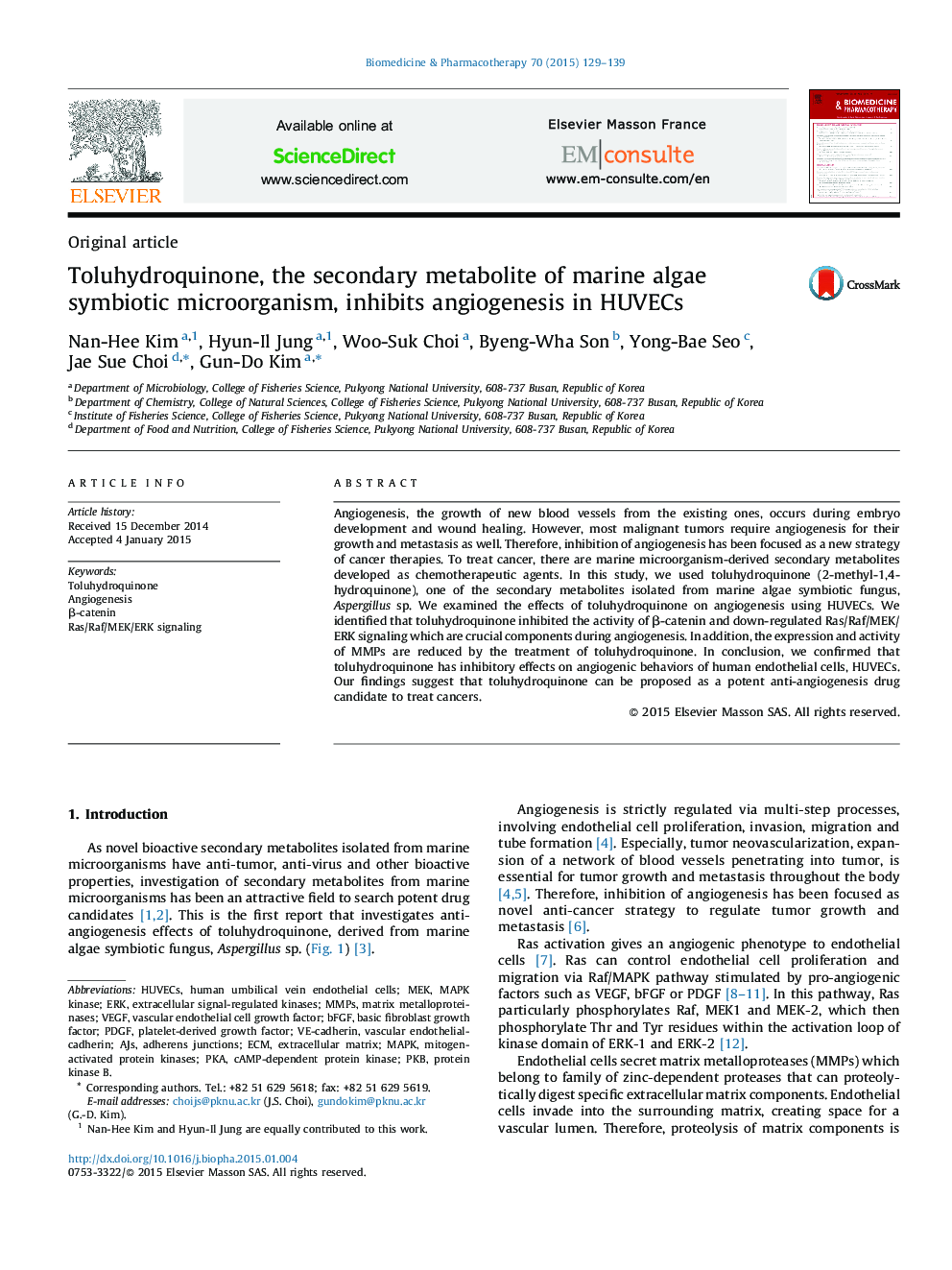| کد مقاله | کد نشریه | سال انتشار | مقاله انگلیسی | نسخه تمام متن |
|---|---|---|---|---|
| 2523996 | 1557972 | 2015 | 11 صفحه PDF | دانلود رایگان |

Angiogenesis, the growth of new blood vessels from the existing ones, occurs during embryo development and wound healing. However, most malignant tumors require angiogenesis for their growth and metastasis as well. Therefore, inhibition of angiogenesis has been focused as a new strategy of cancer therapies. To treat cancer, there are marine microorganism-derived secondary metabolites developed as chemotherapeutic agents. In this study, we used toluhydroquinone (2-methyl-1,4-hydroquinone), one of the secondary metabolites isolated from marine algae symbiotic fungus, Aspergillus sp. We examined the effects of toluhydroquinone on angiogenesis using HUVECs. We identified that toluhydroquinone inhibited the activity of β-catenin and down-regulated Ras/Raf/MEK/ERK signaling which are crucial components during angiogenesis. In addition, the expression and activity of MMPs are reduced by the treatment of toluhydroquinone. In conclusion, we confirmed that toluhydroquinone has inhibitory effects on angiogenic behaviors of human endothelial cells, HUVECs. Our findings suggest that toluhydroquinone can be proposed as a potent anti-angiogenesis drug candidate to treat cancers.
Journal: Biomedicine & Pharmacotherapy - Volume 70, March 2015, Pages 129–139